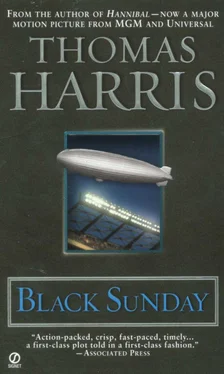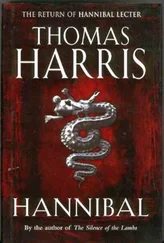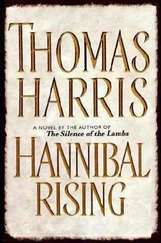“Very well. Don’t move these damned books. I’ll lose my place.”
The caller was Sam Corley in Washington.
“How’s it going?”
“Nothing yet. I’ve got about eighty thousand Arabs to go.”
“I got a report from the Coast Guard. It may not be anything, but one of their cutters spotted a power boat next to a Libyan freighter off the Jersey coast yesterday afternoon. The boat ran from them when they went to take a look.”
“Yesterday?”
“Yeah, they had been busy with a ship fire way out and they were coming back. The freighter was out of Beirut.”
“Where’s the ship now?”
“Impounded in Brooklyn. Captain’s missing. I don’t know the details yet.”
“What about the boat?”
“Gave them the slip in the dark.”
Kabakov swore viciously. “Why did it take them so long to tell us?”
“Damned if I know, but there it is. I’ll call Customs up there. They’ll give you a rundown.”
The Leticia’s first mate and acting captain, Mustapha Fawzi, talked with customs officers for an hour in his little cabin, waving his arms in air thick with the acrid smoke of his Turkish cigarettes.
Yes, the boat approached his ship, Fawzi told them. The boat was low on petrol and requested assistance. Following the law of the sea, he helped them. His description of the boat and its occupants was vague. This event took place in international waters, he stressed. No, he would not voluntarily permit a search of his vessel. The ship, under international law, was Libyan territory and was his responsibility after the most unfortunate falling overboard of Captain Larmoso.
Customs did not want an incident with the Libyan government, particularly now with the Middle East inflamed. What the Coast Guard saw would not constitute sufficient probable cause for a search warrant to be issued. Fawzi promised a deposition on Larmoso’s accident, and the customs officers left the ship to confer with the departments of Justice and State.
Fawzi drank a bottle of the late captain’s beer and fell soundly asleep for the first time in days.
A voice seemed to be calling Fawzi from far away. His name was repeated in a deep voice and something was hurting his eyes. Fawzi awoke and raised his hand to shield his eyes from the blinding flashlight beam.
“Good evening, Mustapha Fawzi,” Kabakov said. “Please keep your hands above the sheet.”
Sergeant Moshevsky, looming huge behind Kabakov, flicked on the lights. Fawzi sat up in bed and called upon God.
“Freeze,” Moshevsky said, holding a knife beneath Fawzi’s ear.
Kabakov pulled up a chair and sat down at the bedside. He lit a cigarette. “I would appreciate a quiet conversation now. Will it be quiet?”
Fawzi nodded and Kabakov motioned Moshevsky away. “Now Mustapha Fawzi, I am going to explain to you how you will help me at no risk to yourself. You see, I will not hesitate to kill you if you do not cooperate, but I have no reason to kill you if you are helpful. It’s very important that you understand that.”
Moshevsky stirred impatiently and delivered his line. “First let me cut—”
“No, no,” Kabakov said, raising his hand. “You see, Fawzi, with men less intelligent than yourself it is often necessary to establish, first, that you will suffer terrible pain and mutilation if you displease me and, second, that you will get some marvelous reward if you are useful. We both know what the reward usually is.” Kabakov flicked the ash from his cigarette with the tip of his little finger. “Ordinarily, I would let my friend break your arms before we talked. But you see, Fawzi, you have nothing to lose by telling me what has happened here. Your noncooperation with Customs is a matter of record. Your cooperation with me will remain our secret.” He flipped his Israeli identification onto the bed. “Will you help me?”
Fawzi looked at the card and swallowed hard. He said nothing.
Kabakov rose and sighed. “Sergeant, I am going out for a breath of air. Perhaps Mustapha Fawzi would like some refreshments. Call me when he has finished eating his testicles.” He turned toward the cabin door.
“I have relatives in Beirut.” Fawzi was having trouble controlling his voice. Kabakov could see the heart pounding in his thin body as he sat half-naked in the bunk.
“Of course you do,” Kabakov said. “And they have been threatened, I am sure. Lie to Customs all you like. But don’t lie to me, Fawzi. There is no place where you will be safe from me. Not here, not at home, not in any port on earth. I have respect for your relatives. I understand these things and I’ll cover for you.”
“The Lebanese killed Larmoso in the Azores,” Fawzi began.
Moshevsky had no taste for torture. He knew Kabakov hated it as well. It took a conscious effort for Moshevsky to keep from smiling as he searched the cabin. Each time Fawzi’s recitation faltered, Moshevsky paused in his work to scowl at him, trying to look disappointed at not getting to carve him up.
“Describe the Lebanese.”
“Slender, medium height. He had a cut on his face, scabbed over.”
“What was in the bags?”
“I don’t know. As Allah is my witness. The Lebanese packed them from the crates in the forward hold. He allowed no one near them.”
“How many were in the boat?”
“Two.”
“Describe them.”
“One tall and thin, the other smaller. They wore masks. I was frightened. I did not look.”
“What did they speak?”
“The bigger spoke English with the Lebanese.”
“The smaller?”
“The smaller said nothing.”
“Could the smaller have been a woman?”
The Arab flushed. He did not want to admit being frightened by a woman. It was unthinkable.
“With the Lebanese holding a gun, with your relatives threatened—it was these thoughts that made you cooperate, Fawzi,” Kabakov said gently.
“The smaller could have been a woman,” Fawzi said finally.
“You saw her hands on the bags?”
“She wore gloves. But there was a lump at the back of her mask that might have been her hair. And there is the thing of her bottom.”
“The thing of her bottom?”
“Rounded, you know. Wider than a man’s. Perhaps a shapely boy?”
Moshevsky, rummaging through the refrigerator, helped himself to a bottle of beer. Something was behind the bottle. He pulled it out and handed it to Kabakov.
“Did Captain Larmoso’s religion require him to keep religious articles in his refrigerator?” Kabakov asked, holding the knife-scarred figure of the Madonna close to Fawzi’s face.
Fawzi looked at it with genuine incomprehension and the distaste a Moslem feels toward religious statuary. Kabakov, deep in thought, smelled the statue and dug into it with his fingernail. Plastic. Larmoso had known what it was, but had not known much about its properties, he reasoned. The captain had thought it safest to keep the thing cold, as cold as the rest of the explosive down in the hold. He needn’t have bothered, Kabakov thought. He turned the statue in his hands. If they went to this trouble to disguise the plastic, then they originally had planned to bring it through Customs.
“Get me the ship’s books,” Kabakov snapped.
Fawzi found the manifest with the bill of lading after a short delay. Mineral water, unrestricted hides, flatware—there it was. Three crates of religious statues. Made in Taiwan. Shipped to Benjamin Muzi.
Muzi watched from Brooklyn Heights as the Leticia labored into New York harbor escorted by the Coast Guard cutter. He swore in several languages. What had Larmoso done? Muzi walked to a telephone booth at top speed, approximately two-and-a-half miles per hour. He moved with the dignity of an elephant, and like an elephant he had surprising grace in his extremities and loved orderly progressions. This business was most disorderly.
Читать дальше












